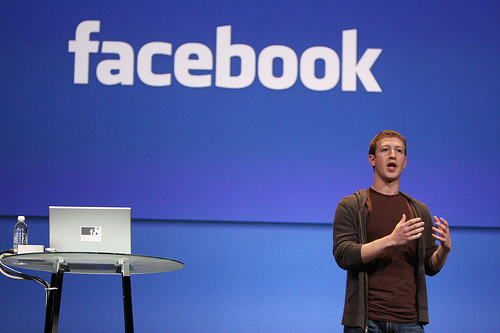Why Is It So Easy for Internet Stars to Sell Out?
Take a moment and think about who you follow online. Whether they’re popular YouTubers, Twitter powerhouses or prolific bloggers, they all have a unique success story. More importantly, many of them are now drawing comfortable salaries for doing simple things like posting videos or writing online articles.
But where do we draw the line when it comes to the success of Internet personalities? How comfortable is the general public with the idea that a person can film daily vlogs on their iPhone and make more money than your average mid-level office worker? And when our favourite Internet stars start making the jump to a “traditional” medium like TV, do we see them as “selling out”?
First of all, it might surprise some of you that a career made purely on the Internet is so lucrative. Obviously, social media titans like Mark Zuckerberg have made billions, as have a lot of other major companies. But the idea of one person alone with a camera, bringing in a salary in the high five figures to low six figures, is still slightly novel. The best example of this is the Partner program on YouTube, responsible for starting the careers of hundreds, if not thousands, of content creators.
Characters like Philip DeFranco, Toby Turner, Julian Smith and Freddie Wong (who I’ve written about before) owe a substantial part of their success to YouTube’s system of sharing ad revenue with users who bring in big viewership, subscription and interaction numbers. While YouTube Partners tend not to flaunt the money they’re making, it’s clear to frequent viewers that many of them aren’t living hand-to-mouth (think upscale cars, sponsorships, travel and fancy parties).
So what do the fans make of this kind of success? One indicator is the comments section. You’ll often see users who are obviously jealous of the lifestyles led by Internet stars, saying “I wish I had her life!”, or “I can’t believe he makes videos for a living and drives a BMW!” Fortunately for the artist in question, the response is usually fueled more by appreciation of their luck and talent than negative feelings.
What happens, though, when an Internet star jumps ship and pops up on TV, or in movie? Reaction soon turns ugly. When Freddie Wong had a cameo on an episode of NBC’s Chuck, users called him a sell-out, and proclaimed that he’d abandoned the theoretically intimate relationship with his viewers for the mainstream visibility of network TV. It may sound silly, but some fans perceived it as a sort of betrayal.
In a way, it is fairly silly. I’d argue that it doesn’t matter what medium you’re watching - movie, TV or Internet – as long as a piece of content well-made, it’s legitimate. But there’s something about online videos and personal blogs that forms a strong connection to consumers. A lot of fans begin to feel like the creator is speaking only to them. When the creator then trades their online popularity for a bigger stage, perhaps it’s understandable for some feelings to be hurt.
There’s obviously more to the job of being an Internet star than the fun of creating the end product that users enjoy. There’s usually corporate meetings to attend, constant self-promotion to churn out, and in some cases, merchandise to flog. What’s more, it’s easy to see why Internet stars aspire to the hallowed halls of traditional media. There’s a certain job stability in a TV show or movie that still can’t be found online, where success is even more fleeting than in old-school show business.
The concept of “selling out” is as old as humanity itself, but it’s interesting to see how it plays out with online entertainment. Technology affords us so much connectivity that creator-consumer relationships can be made instantly and disappear just as quickly. Users can feel as close to an Internet star as they do to their own family (when your Skype chat with Grandma feels just like a YouTube video, it’s no surprise). As forms of media rapidly converge, it’ll be fascinating to see just how connected – and how betrayed – we really feel.
-
How close do you feel to the people you follow? If they made the jump to the “mainstream”, would you feel betrayed? Or are we reading too far into online relationships? You know the drill: Sound off in the comments section, let me know on Twitter, or click through to my other Internet-related articles:
-
Is 'Sourcefed' the Future of News?
The Creative Magic of hitRECord
-




